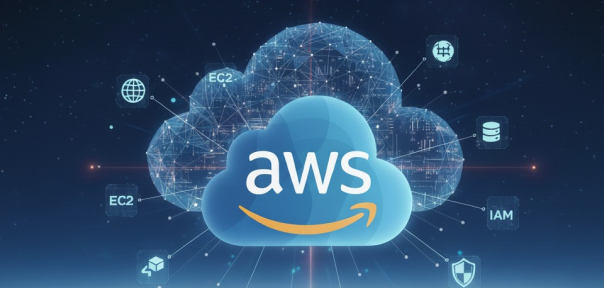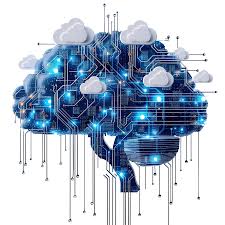1000+ Courses for Free
Log in
If an account with this email id exists, you will receive instructions to reset your password.
-
Advance your career with accredited online programs from world-class universities
-
Develop new skills with high-quality premium online courses
-
Learn for free with 1000+ introductory courses
Sign up
Loading...
- Free Courses
- Cloud Computing free courses
Top Free Cloud Computing Courses
 4.53/5 Avg. Rating
4.53/5 Avg. Rating
 4.53/5 Avg. Rating
4.53/5 Avg. Rating
 40 Courses
40 Courses
 500000+ Learners
500000+ Learners
 40 Courses
40 Courses
 500000+ Learners
500000+ Learners
Pro & University Programs







.png)

McCombs School of Business at The University of Texas at Austin
6 months • Online
View Program
Free Cloud Computing Courses
Filter


Skills: Fundamnetals of Cloud, Cloud's Significance, Service Models, Abstraction Levels, SPIDERS Freameowrk, Cloud Architecture, Managed Services, Resource Allocation, Pricing and Scaling Models
View Course

Skills: Cloud Foundations,Cloud Computing Benefits
View Course
.jpg)
Skills: Amazon Web Services, Microsoft Azure, Google Cloud Platform
View Course

Skills: Basics of Cloud Computing, Cloud Computing Platforms, Types of cloud deployment, Cloud Computing Architecture
View Course

Skills: Cloud Service Models,Trends in Service Models
View Course

Skills: Cloud Computing Services, Infrastructure as a Service
View Course

Skills: Introduction to Cloud Computing, Types of Cloud Deployment, Cloud Computing Services, Platform as a Service, Types of PaaS and Top Providers
View Course

Skills: SaaS Fundamentals, Cloud Concepts, Service Models, SaaS Architecture, API Integration, Data Security, User Management, Subscription Models, Performance Monitoring, Compliance
View Course

Skills: Virtualization in Cloud Computing, Important Virtualization Terminologies
View Course


Skills: Cloud Computing fundamentals, AWS fundamentals, AWS Management, Understanding IaaS PaaS SaaS, Cloud Deployment Models, AWS Global Infrastructure, AWS Core Services, AWS Compute Services, Scalability, Flexibility, Cost, Security,
View Course

Skills: Cloud Virtualization,Cloud Centralization,Distributed Computing ,Cloud Applications
View Course


Skills: Building chatbots in Azure, Building websites using Azure
View Course

Skills: Fundamnetals of Cloud, Cloud's Significance, Service Models, Abstraction Levels, SPIDERS Freameowrk, Cloud Architecture, Managed Services, Resource Allocation, Pricing and Scaling Models
View Course

Skills: Cloud Foundations,Cloud Computing Benefits
View Course
.jpg)
Skills: Amazon Web Services, Microsoft Azure, Google Cloud Platform
View Course

Skills: Basics of Cloud Computing, Cloud Computing Platforms, Types of cloud deployment, Cloud Computing Architecture
View Course

Skills: Cloud Service Models,Trends in Service Models
View Course

Skills: Cloud Computing Services, Infrastructure as a Service
View Course

Skills: Introduction to Cloud Computing, Types of Cloud Deployment, Cloud Computing Services, Platform as a Service, Types of PaaS and Top Providers
View Course

Skills: SaaS Fundamentals, Cloud Concepts, Service Models, SaaS Architecture, API Integration, Data Security, User Management, Subscription Models, Performance Monitoring, Compliance
View Course

Skills: Virtualization in Cloud Computing, Important Virtualization Terminologies
View Course

Skills: Cloud Computing fundamentals, AWS fundamentals, AWS Management, Understanding IaaS PaaS SaaS, Cloud Deployment Models, AWS Global Infrastructure, AWS Core Services, AWS Compute Services, Scalability, Flexibility, Cost, Security,
View Course

Skills: Cloud Virtualization,Cloud Centralization,Distributed Computing ,Cloud Applications
View Course

Skills: Building chatbots in Azure, Building websites using Azure
View Course
Explore Courses
Get started with these courses
.jpg)

Skills: AWS IoT architecture, AWS IoT Core components, managing IoT data with DynamoDB, implementing IoT security best practices, and identifying real-world IoT applications.
View Course

Skills: AI & cloud, AWS, Deployment
View Course
.jpg)
Skills: Types of Cloud Services,Business Drivers for Cloud,Site Reliability Engineering
View Course

Skills: Cloud Foundations,Cloud Computing Benefits
View Course


Skills: Cloud Serverless Application
View Course

Skills: you will be able to decide which platform to select for which kind of work
View Course


Skills: Cloud Computing, AWS, Mobile App Creation
View Course


Skills: AWS platform, Core building blocks in AWS, Abstraction
View Course

Skills: Azure console, Azure services, Resources in Azure
View Course
.jpg)

Skills: AWS Load Balancer, Types of Load Balancer, Hands-on for Load Balancer for Cloud Traffic
View Course

Skills: SaaS Fundamentals, Cloud Concepts, Service Models, SaaS Architecture, API Integration, Data Security, User Management, Subscription Models, Performance Monitoring, Compliance
View Course

Skills: AWS ECR, AWS ECS, Deploying a simple app
View Course
.jpg)
Skills: Amazon Web Services, Microsoft Azure, Google Cloud Platform
View Course


Skills: Cloud Computation, Amazon VPC, Cloud Networking, AWS Interface, AWS Cloud Services
View Course

Skills: Introduction to Cloud Computing, Types of Cloud Deployment, Cloud Computing Services, Platform as a Service, Types of PaaS and Top Providers
View Course

Skills: Fundamnetals of Cloud, Cloud's Significance, Service Models, Abstraction Levels, SPIDERS Freameowrk, Cloud Architecture, Managed Services, Resource Allocation, Pricing and Scaling Models
View Course


Skills: Cloud Computing fundamentals, AWS fundamentals, AWS Management, Understanding IaaS PaaS SaaS, Cloud Deployment Models, AWS Global Infrastructure, AWS Core Services, AWS Compute Services, Scalability, Flexibility, Cost, Security,
View Course

Skills: Cloud Virtualization,Cloud Centralization,Distributed Computing ,Cloud Applications
View Course

Skills: Basics of Cloud Computing, Cloud Computing Platforms, Types of cloud deployment, Cloud Computing Architecture
View Course

Skills: Virtualization in Cloud Computing, Important Virtualization Terminologies
View Course


Skills: Building chatbots in Azure, Building websites using Azure
View Course

Skills: Cloud Service Models,Trends in Service Models
View Course


Skills: Understanding how to build an app on AWS, Deploying the App
View Course
New
.jpg)

Skills: AWS IoT architecture, AWS IoT Core components, managing IoT data with DynamoDB, implementing IoT security best practices, and identifying real-world IoT applications.
View Course

Skills: AI & cloud, AWS, Deployment
View Course
.jpg)
Skills: Types of Cloud Services,Business Drivers for Cloud,Site Reliability Engineering
View Course

Skills: Cloud Foundations,Cloud Computing Benefits
View Course


Skills: Cloud Serverless Application
View Course

Skills: you will be able to decide which platform to select for which kind of work
View Course


Skills: Cloud Computing, AWS, Mobile App Creation
View Course
Trending


Skills: AWS platform, Core building blocks in AWS, Abstraction
View Course

Skills: Azure console, Azure services, Resources in Azure
View Course
.jpg)

Skills: AWS Load Balancer, Types of Load Balancer, Hands-on for Load Balancer for Cloud Traffic
View Course

Skills: SaaS Fundamentals, Cloud Concepts, Service Models, SaaS Architecture, API Integration, Data Security, User Management, Subscription Models, Performance Monitoring, Compliance
View Course

Skills: AWS ECR, AWS ECS, Deploying a simple app
View Course
.jpg)
Skills: Amazon Web Services, Microsoft Azure, Google Cloud Platform
View Course


Skills: Cloud Computation, Amazon VPC, Cloud Networking, AWS Interface, AWS Cloud Services
View Course

Skills: Introduction to Cloud Computing, Types of Cloud Deployment, Cloud Computing Services, Platform as a Service, Types of PaaS and Top Providers
View Course
Popular

Skills: Fundamnetals of Cloud, Cloud's Significance, Service Models, Abstraction Levels, SPIDERS Freameowrk, Cloud Architecture, Managed Services, Resource Allocation, Pricing and Scaling Models
View Course


Skills: Cloud Computing fundamentals, AWS fundamentals, AWS Management, Understanding IaaS PaaS SaaS, Cloud Deployment Models, AWS Global Infrastructure, AWS Core Services, AWS Compute Services, Scalability, Flexibility, Cost, Security,
View Course

Skills: Cloud Virtualization,Cloud Centralization,Distributed Computing ,Cloud Applications
View Course

Skills: Basics of Cloud Computing, Cloud Computing Platforms, Types of cloud deployment, Cloud Computing Architecture
View Course

Skills: Virtualization in Cloud Computing, Important Virtualization Terminologies
View Course


Skills: Building chatbots in Azure, Building websites using Azure
View Course

Skills: Cloud Service Models,Trends in Service Models
View Course


Skills: Understanding how to build an app on AWS, Deploying the App
View Course
Learner reviews of the Free Cloud Computing Courses
Our learners share their experiences of our courses

LinkedIn Profile


LinkedIn Profile


LinkedIn Profile


LinkedIn Profile


LinkedIn Profile


LinkedIn Profile


LinkedIn Profile


LinkedIn Profile


LinkedIn Profile


5.0
LinkedIn Profile

Learn Cloud Computing For Free & Get Completion Certificates
Explore our free cloud computing courses designed to impart a thorough understanding of various cloud technologies and services. These courses cover fundamental concepts like cloud infrastructure, Software as a Service (SaaS), Platform as a Service (PaaS), Infrastructure as a Service (IaaS), and more advanced topics such as serverless computing, cloud security, and cloud storage solutions.
Key Highlights of Our Free Cloud Computing Courses Collection
- Comprehensive Coverage: Explore everything from basic cloud concepts to advanced implementations like serverless computing and cloud security.
- Hands-on Learning: Engage with structured video lessons, practical exercises, and real-world projects to gain actionable skills.
- Accessible for All: Suitable for beginners to advanced learners looking to deepen their cloud knowledge.
- Certification: Earn certificates upon completion that can enhance your resume and showcase your expertise.
Skills Covered
- Core Technologies: Understand the fundamentals of IaaS, PaaS, SaaS, and serverless computing.
- Cloud Security: Learn about secure cloud storage and data protection strategies.
- Scalability and Flexibility: Master techniques for scaling resources and optimizing cloud solutions for business needs.
- Cloud Automation and DevOps: Get acquainted with the automation of cloud deployments and continuous integration/continuous deployment (CI/CD) practices.
Who Should Take Our Free Cloud Computing Courses?
- Tech Enthusiasts: Individuals interested in the latest cloud technologies and innovations.
- IT Professionals: Those looking to upgrade their skills or pivot to a role within cloud computing.
- Students and Educators: Anyone in academia seeking to incorporate cloud knowledge into their learning or teaching.
- Business Professionals: Executives and managers who need to understand cloud applications in business contexts.
What Will You Learn in Our Free Cloud Computing Courses?
- Cloud Fundamentals: Basics of cloud infrastructure and the different service models.
- Deployment and Management: Techniques for deploying and managing cloud resources effectively.
- Real-World Applications: Practical applications of cloud technologies in various industries.
- Innovative Solutions: Use of hybrid cloud environments, cloud virtualization, and exploring the impact of cloud solutions on business innovation.
Start your journey into cloud computing, unlock new career opportunities, and gain a competitive edge in technology and business environments. Register for the Cloud Computing courses to get professionally certified.
Meet your faculty
Meet industry experts who will teach you relevant skills in artificial intelligence
-
◆
25+ years across IT/ITES in services and products
-
◆
Ex-Chief Architect at Dell, Principal Architect at Infosys


Mr. Vishal Padghan
Frequently Asked Questions
What are the prerequisites required to learn these free Cloud Computing courses?
There's no prior experience necessary to begin, but before you learn advanced courses, complete introductory courses to have strong cloud foundations and develop an interest in working on cloud-based services.
How long does it take to complete these Cloud Computing free courses?
These courses include 1-3 hours of comprehensive video lectures. These courses are, however, self-paced, and you can complete them at your convenience.
What knowledge and skills will I gain upon completing these free Cloud Computing courses?
After completing these free Cloud Computing courses, you will understand the principles of cloud computing, such as virtualization, cloud
architecture, deployment models, and security. You will also gain the skills to design and deploy cloud solutions, assess cloud solutions, and optimize cloud performance. Additionally, you will be able to analyze cloud computing technologies and services, build cloud infrastructure, and develop cloud applications.
Will I have lifetime access to these free Cloud Computing courses with certificates?
Yes. You will have lifetime access to these courses after enrolling in them and access to certificates after completing the course.
Will I get a certificate after completing these free Cloud Computing courses?
Yes. After completing them successfully, you will receive a certificate of completion for each course.
How much do these Free Cloud Computing courses cost?
These are free courses; you can enroll in them and learn for free online.
What are my next learning options after these Free Cloud Computing Courses Online?
These free Cloud Computing courses give you a competitive edge in your professional life. Register for the Cloud Computing Training to further gain professional knowledge after completing these free courses.
Is it worth learning about Cloud Computing?
Cloud computing offers many benefits to those who take the time to understand the technology. It can help reduce costs, improve scalability, and increase business security. From startups to larger organizations, cloud computing can provide a reliable and efficient way to manage data and applications. Furthermore, cloud computing can help organizations become more agile and adaptive, enabling them to respond quickly to market changes and customer demands. With this in mind, it is clear that learning about cloud computing is well worth the time and effort.
Why is Cloud Computing so popular?
Cloud Computing is a large field of study that is expanding, which means there will be plenty of chances in the future. The discipline of Cloud Computing is anticipated to become increasingly specialized as employment functions get more specialized. Because it has been revealing outstanding solutions and wise decisions across numerous industries, Cloud Computing is crucial for organizations.
What jobs demand you learn Cloud Computing?
Jobs that are directly related to Cloud Computing are,
- Cloud Administrator
- Cloud Support Engineer
- Cloud Security Analyst
- Cloud Network Engineer
- Cloud Software Engineer
- Cloud Automation Engineer
- Cloud Engineer
- Cloud Consultant
Why take free Cloud Computing training courses from Great Learning Academy?
Great Learning Academy offers a wide range of high-quality, completely free Cloud Computing courses. From beginner to advanced level, these free courses are designed to help you improve your Cloud Computing and Engineering skills and achieve your goals. All these courses come with a certificate of completion, so you can demonstrate your new skills to the world. Start learning today and discover the benefits of free Cloud Computing courses!
Who are eligible to take these free Cloud Computing courses?
These courses have no prerequisites. Anybody can learn from these courses for free online.
What are the steps to enroll in these free Cloud Computing courses?
To learn Cloud Computing basics and advance concepts from these courses, you need to,
- Go to the course page
- Click on the "Enroll for Free" button
- Start learning the Cloud Computing course for free online.
Media spotlight and awards
-

Wharton Online Kickstarts the First Cohort for Its 12-Week Advanced Digital Marketing and Growth Strategies Program in Collaboration With Great Learning
12 Jun 2023
Read Article
-

3 ways women can reach the C-suite even though research shows the odds are against them
10 Sep 2022
Read Article
-

Helping High School Students Develop Real-Life Tech Skills
29 Jun 2022
Read Article
-

How this leader is morphing education to meet the needs of today’s economy
23 Jun 2022
Read Article
-

How Upskilling Can Help You Advance in Your Career
27 May 2022
Read Article
-

OPINION: Companies will be more likely to retain top talent by investing in employees’ professional growth and development
29 Mar 2022
Read Article
-

Learning opportunities will cultivate a talented, motivated workforce
15 Feb 2022
Read Article
-

Great Learning Collaborates with Wharton Online to Expand Access to Premier Business Courses
14 Feb 2022
Read Article
-

The Great Resignation & The Future Of Work: Mohan Lakhamraju Of Great Learning On How Employers and Employees Are Reworking Work Together
09 Jan 2022
Read Article
-

Hispanic Heritage Month: Great Learning celebrates the inspiring stories of resilience and courage of its Hispanic American Learners
28 Sep 2021
Read Article
-
Read more









